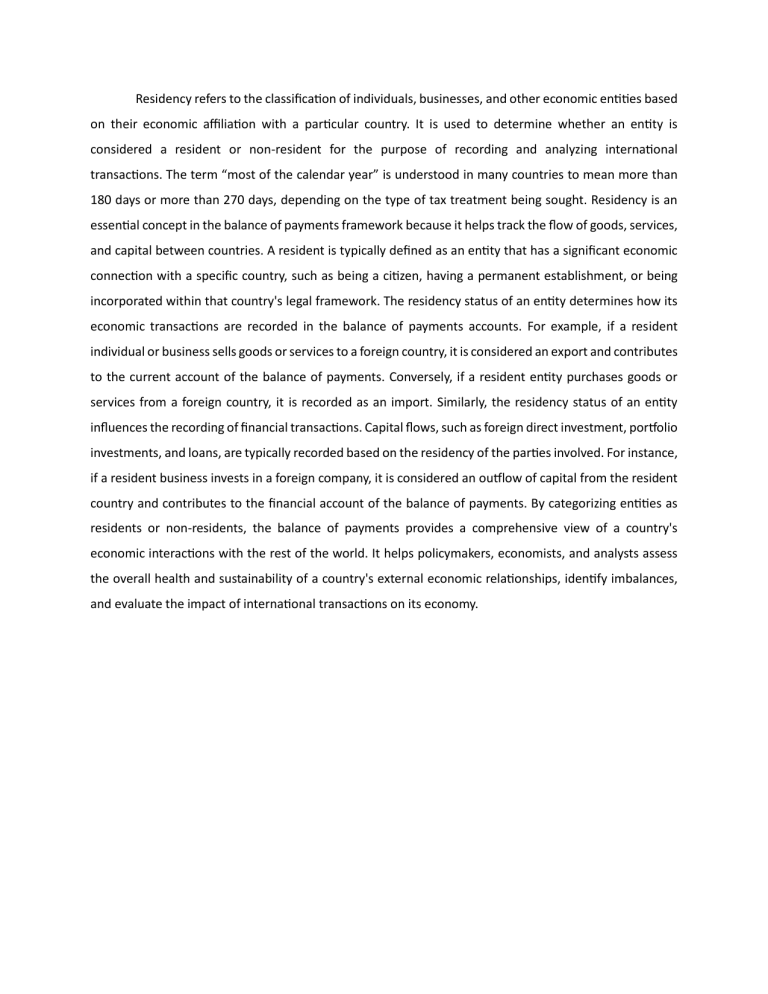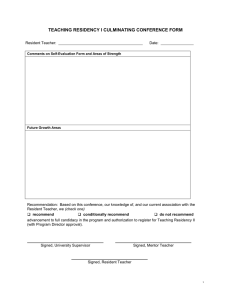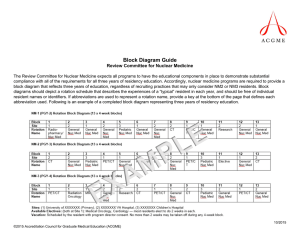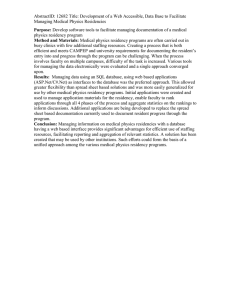
Residency refers to the classification of individuals, businesses, and other economic entities based on their economic affiliation with a particular country. It is used to determine whether an entity is considered a resident or non-resident for the purpose of recording and analyzing international transactions. The term “most of the calendar year” is understood in many countries to mean more than 180 days or more than 270 days, depending on the type of tax treatment being sought. Residency is an essential concept in the balance of payments framework because it helps track the flow of goods, services, and capital between countries. A resident is typically defined as an entity that has a significant economic connection with a specific country, such as being a citizen, having a permanent establishment, or being incorporated within that country's legal framework. The residency status of an entity determines how its economic transactions are recorded in the balance of payments accounts. For example, if a resident individual or business sells goods or services to a foreign country, it is considered an export and contributes to the current account of the balance of payments. Conversely, if a resident entity purchases goods or services from a foreign country, it is recorded as an import. Similarly, the residency status of an entity influences the recording of financial transactions. Capital flows, such as foreign direct investment, portfolio investments, and loans, are typically recorded based on the residency of the parties involved. For instance, if a resident business invests in a foreign company, it is considered an outflow of capital from the resident country and contributes to the financial account of the balance of payments. By categorizing entities as residents or non-residents, the balance of payments provides a comprehensive view of a country's economic interactions with the rest of the world. It helps policymakers, economists, and analysts assess the overall health and sustainability of a country's external economic relationships, identify imbalances, and evaluate the impact of international transactions on its economy.



